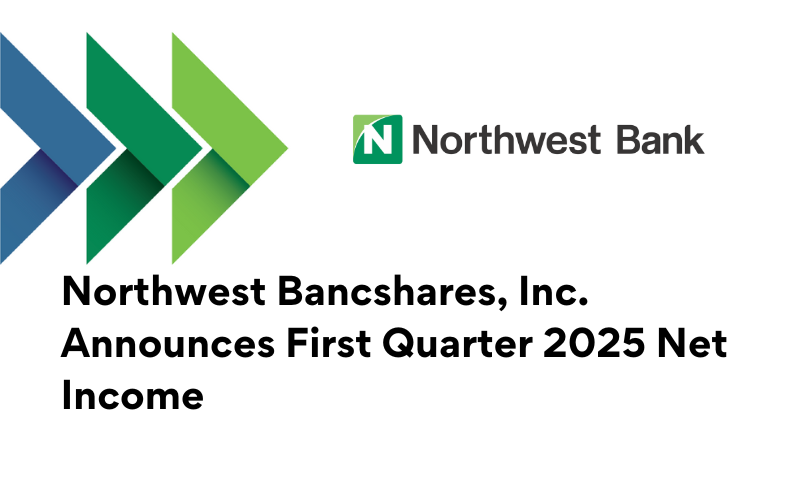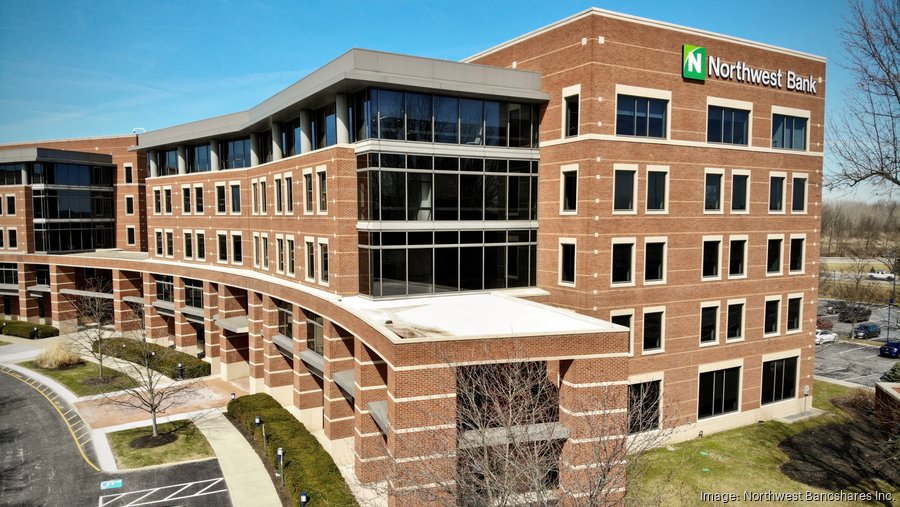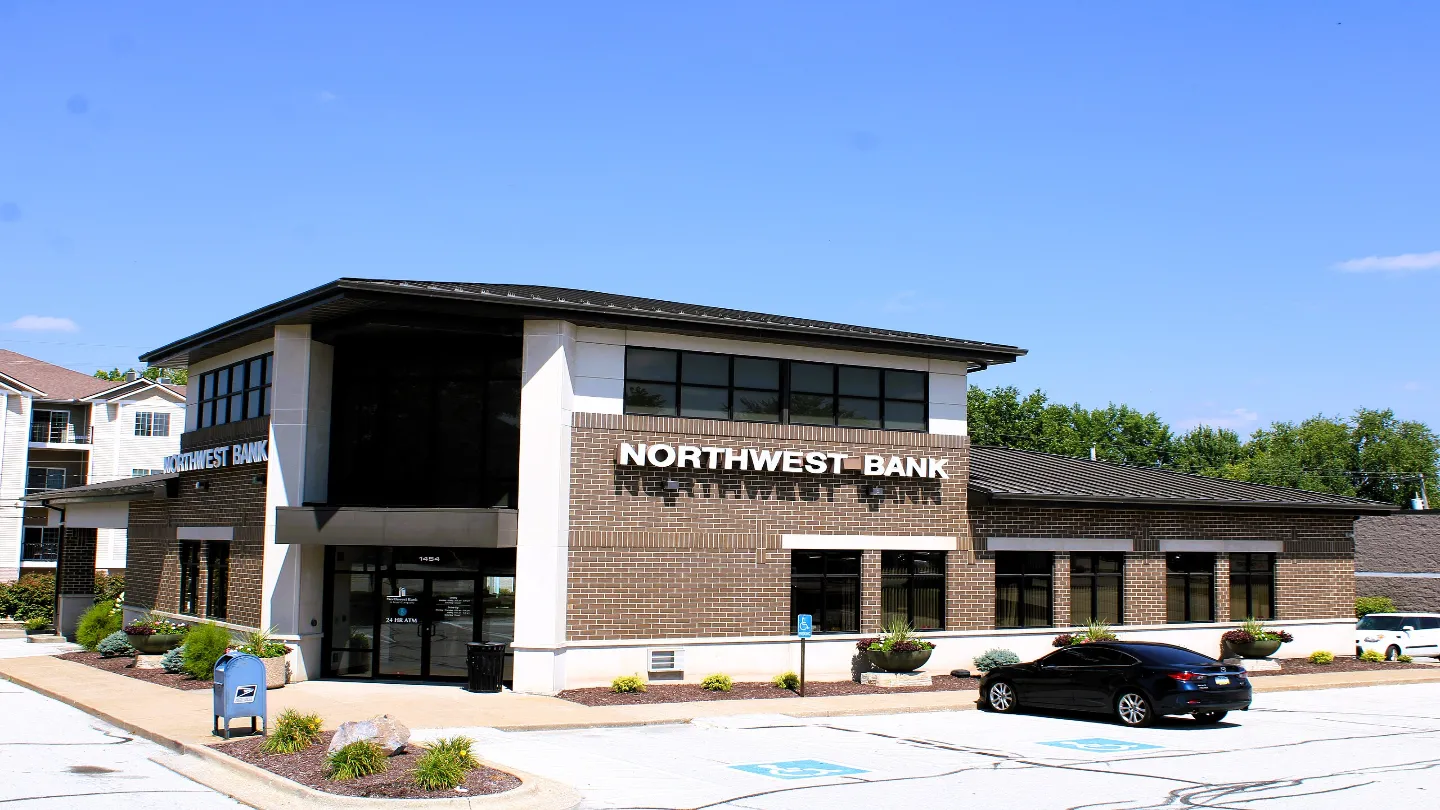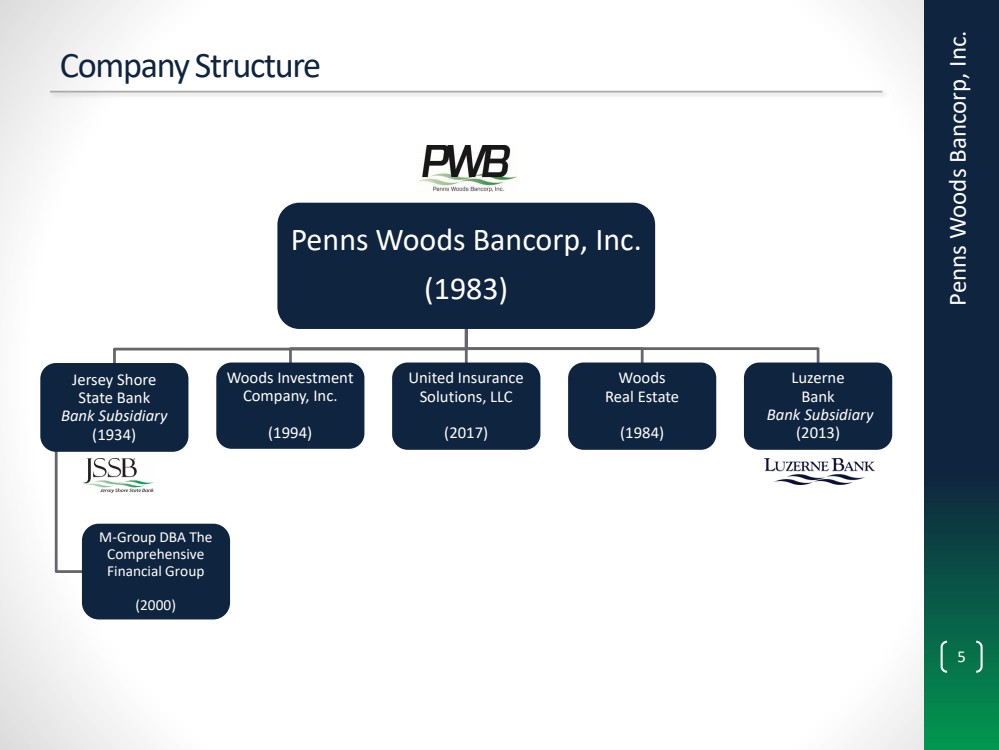Northwest Bank Acquires Penns Woods Bancorp
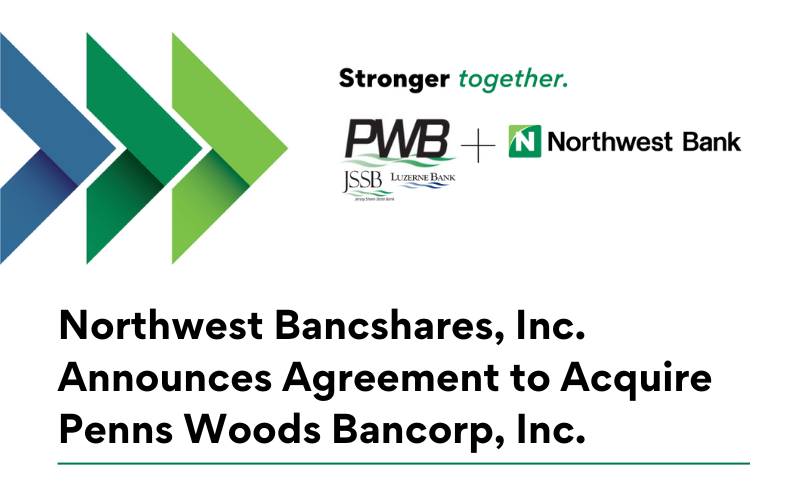
The financial landscape in Pennsylvania is undergoing a significant shift as Northwest Bank, a subsidiary of Northwest Bancshares, Inc. (NWBI), has announced its definitive agreement to acquire Penns Woods Bancorp, Inc. (PWOD), the parent company of Jersey Shore State Bank.
The all-stock transaction, valued at approximately $481 million based on Northwest Bancshares' closing price on June 7, 2024, marks a strategic move for Northwest Bank to expand its presence in central Pennsylvania and fortify its position as a leading community bank in the region.
This acquisition promises to reshape the banking sector for both customers and shareholders, raising questions about the future of community banking and the impact of consolidation on local economies.
The Deal: A Closer Look
The agreement stipulates that shareholders of Penns Woods Bancorp will receive 1.1563 shares of Northwest Bancshares stock for each share of Penns Woods Bancorp they own.
This valuation is based on Northwest Bancshares' closing price of $12.95 on June 7, 2024. The exchange ratio is subject to adjustment based on Penns Woods Bancorp’s equity, but the aggregate consideration will not change.
Following the completion of the merger, Jersey Shore State Bank will be integrated into Northwest Bank, operating under the Northwest Bank name and brand.
This integration is expected to create operational efficiencies and enhance the bank's ability to serve its customers with a broader range of products and services.
Strategic Rationale
According to statements released by both companies, the acquisition aligns with Northwest Bank's strategic growth objectives and Penns Woods Bancorp's desire to provide greater value to its shareholders.
Ronald J. Seiffert, Chairman, President, and CEO of Northwest Bancshares, stated that the acquisition will "complement Northwest's existing footprint and allow us to better serve customers in central Pennsylvania."
Furthermore, he emphasized the cultural alignment between the two institutions, noting their shared commitment to community banking principles and customer service.
James V. Ekman, President and CEO of Penns Woods Bancorp, echoed these sentiments, stating that the merger will "provide our shareholders with an attractive return on their investment and our customers with access to a wider array of financial solutions."
The merger aims to create a stronger, more competitive institution that can better meet the evolving needs of its customers in a dynamic financial landscape.
Financial Impact and Integration
Northwest Bancshares anticipates that the acquisition will be accretive to its earnings per share (EPS) in the first full year of combined operations, excluding one-time transaction costs.
The company also expects to realize cost synergies through operational efficiencies and the elimination of redundancies.
The integration process will involve combining the operations, systems, and employees of both banks. Northwest Bank has a track record of successful integrations, and they are committed to ensuring a smooth transition for customers and employees of Jersey Shore State Bank.
Regulatory approvals from the Board of Governors of the Federal Reserve System and the Pennsylvania Department of Banking and Securities will need to be secured before the deal can be finalized.
Subject to regulatory approvals and the satisfaction of other customary closing conditions, the transaction is expected to be completed in the first quarter of 2025.
Customer and Employee Considerations
While the merger promises benefits in terms of expanded services and operational efficiencies, some customers may be concerned about potential changes to their banking relationships.
Northwest Bank has assured customers of Jersey Shore State Bank that they will be kept informed throughout the integration process and that their accounts and services will be transitioned seamlessly.
Regarding employees, Northwest Bank has indicated that it values the talent and experience of the Jersey Shore State Bank workforce and that opportunities will be available for them within the combined organization.
However, as with any merger, some job consolidation may occur. Northwest Bank has committed to treating employees fairly and providing support during the transition.
Industry Trends and Competitive Landscape
The acquisition of Penns Woods Bancorp by Northwest Bank reflects a broader trend of consolidation in the banking industry, particularly among community banks.
Increased regulatory burdens, technological advancements, and the need to achieve economies of scale are driving this consolidation.
Smaller banks are finding it increasingly challenging to compete with larger institutions that have greater resources to invest in technology, compliance, and product development.
The competitive landscape in Pennsylvania's banking sector is becoming increasingly concentrated, with fewer, larger institutions dominating the market.
This trend raises concerns about the potential impact on local communities, as larger banks may be less responsive to the needs of small businesses and individual customers.
"Community banks play a vital role in supporting local economies and providing access to credit for underserved populations," says Dr. Emily Carter, a banking analyst at Pennsylvania State University.
"Consolidation can lead to a loss of local focus and a decline in customer service."
However, proponents of consolidation argue that it creates stronger, more resilient banks that can better withstand economic downturns and provide more comprehensive financial services.
Looking Ahead
The acquisition of Penns Woods Bancorp by Northwest Bank represents a significant development in the Pennsylvania banking landscape.
The success of the merger will depend on how effectively Northwest Bank integrates the operations, systems, and employees of the two institutions while maintaining a focus on customer service and community engagement.
As the banking industry continues to evolve, it will be crucial for institutions to adapt to changing customer expectations and technological advancements while preserving the values of community banking.
The long-term impact of this consolidation trend on local economies and access to financial services remains to be seen.
Stakeholders will be watching closely to see how the combined institution navigates these challenges and opportunities in the years ahead. The financial services sector in Pennsylvania will continue to change as banks are looking at new ways to grow and maintain their competitive edge.
